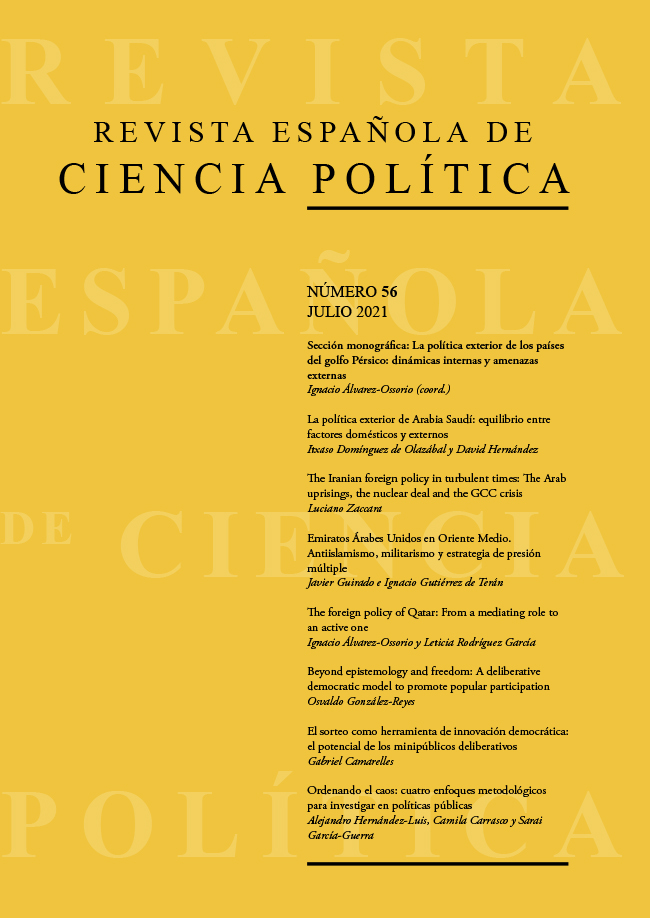The United Arab Emirates in the Middle East. Anti-islamism, militarism, and multiple-pressure strategy
DOI:
https://doi.org/10.21308/recp.56.03Keywords:
United Arab Emirates, foreign policy, Arab Spring, political islam, Persian Gulf, Mohammed bin ZayedAbstract
TThe United Arab Emirates’ (UAE) foreign policy has experienced substantial changes since the beginning of the so-called Arab Spring in 2011. This paper describes the characteristics and main reasons of this transformation, as well as the possible consequences of a visible militaristic projection that goes beyond the limits of the Gulf region, the main scenario of Emirati diplomatic action until recently. Our framework takes into account, first of all, the traditional link between the United States and the UAE and how recent US administrations changed their perception about security in the Gulf; how Emir Mohammed bin Zayed has secured his grip over the country, and the relevance of his alliance with the Saudi Crown Prince Mohammed bin Salman; the aim of neutralizing the democratic stream that emerged from the Arab revolutions and, from there on, the Emirati perception about how political Islam and particularly the current best represented by the Muslim Brotherhood was becoming the main beneficiary of the erosion of the traditional Arab regime. Moreover, this paper proposes that despite the convergence with Saudi Arabia in a number of scenarios, the UAE has kept a foreign policy based on its own interests, which strengthened its increasing role as a regional main contender in the Middle East.
Downloads
Published
How to Cite
Issue
Section
License
Copyright (c) 2021 Ignacio fernando Gutierrez de Teran Gomez-Benita

This work is licensed under a Creative Commons Attribution-NonCommercial-NoDerivatives 4.0 International License.






